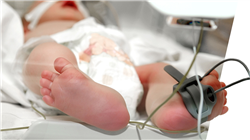University certificate
The world's largest faculty of medicine”
Introduction to the Program
Thanks to this TECH Postgraduate certificate, you will be prepared to act effectively in Hemodynamic Emergencies in the Pediatric Intensive Care Unit"

Historically, the evolution of strategies and technologies to address Hemodynamic Emergencies in the PICU has been significant. Years ago, therapeutic options were limited and treatments were reactive.
However, with innovation in medical science and devices, sophisticated monitoring tools have been developed, allowing continuous and accurate assessment of patient status. In addition, advances in pharmacology have also played an important role. The introduction of specific vasoactive and inotropic drugs has allowed for the development of new and more effective drugs.
According to the European Society for Pediatric Intensive Care, the implementation of evidence-based protocols and the use of advanced equipment has significantly reduced mortality from Septic Shock by 30% in Europe. Therefore, TECH has been involved in the development of a cutting-edge program, through which they provide physicians with a comprehensive specialization in this field, so that they can successfully face the challenges of a complex field.
In this Postgraduate certificate, complications such as Hypertension, Thrombosis and Bradyarrhythmias, as well as the implementation of protocols and strategies for their management, will be discussed in depth. At the same time, the underlying causes of Cardiac Failures in children will be studied in depth, and imaging techniques and biomarkers for early diagnosis will be mastered. All this, with the support of a prestigious teaching staff, which will provide analysis of real case studies and quality teaching material. You will also be able to take advantage of the innovative Relearning methodology, pioneered by TECH, which consists of the internalization of key concepts through repetition, as well as of a 100% online syllabus.
You will get a comprehensive and in-depth vision of this area of knowledge and become a professional reference, through the best teaching materials, at the forefront of technology and education"
This Postgraduate certificate in Hemodynamic Emergencies in the PICU contains the most complete and up-to-date scientific program on the market. The most important features include:
- The development of practical cases presented by experts in Hemodynamic Emergencies in the PICU
- The graphic, schematic and eminently practical contents with which it is conceived gather scientific and practical information on those disciplines that are indispensable for professional practice
- Practical exercises where the self-assessment process can be carried out to improve learning
- Its special emphasis on innovative methodologies
- Theoretical lessons, questions to the expert, debate forums on controversial topics, and individual reflection assignments
- Content that is accessible from any fixed or portable device with an Internet connection
You will master the imaging techniques and biomarkers for the early diagnosis of Heart Failure in Pediatrics, thanks to a course of excellence in the best digital university in the world according to Forbes"
The program’s teaching staff includes professionals from the sector who contribute their work experience to this specializing program, as well as renowned specialists from leading societies and prestigious universities.
The multimedia content, developed with the latest educational technology, will provide the professional with situated and contextual learning, i.e., a simulated environment that will provide immersive education programmed to learn in real situations.
This program is designed around Problem-Based Learning, whereby the professional must try to solve the different professional practice situations that arise during the course. For this purpose, students will be assisted by an innovative interactive video system created by renowned and experienced experts.
Specialize through an innovative methodology, with which you will achieve optimal results and in which TECH is a pioneer: Relearning"

You will analyze the different types of emergency situations and Hemodynamic Pathologies that you may face in a PICU, thanks to an extensive library of multimedia resources"
Why study at TECH?
TECH is the world’s largest online university. With an impressive catalog of more than 14,000 university programs available in 11 languages, it is positioned as a leader in employability, with a 99% job placement rate. In addition, it relies on an enormous faculty of more than 6,000 professors of the highest international renown.

Study at the world's largest online university and guarantee your professional success. The future starts at TECH”
The world’s best online university according to FORBES
The prestigious Forbes magazine, specialized in business and finance, has highlighted TECH as “the world's best online university” This is what they have recently stated in an article in their digital edition in which they echo the success story of this institution, “thanks to the academic offer it provides, the selection of its teaching staff, and an innovative learning method aimed at educating the professionals of the future”
A revolutionary study method, a cutting-edge faculty and a practical focus: the key to TECH's success.
The most complete study plans on the university scene
TECH offers the most complete study plans on the university scene, with syllabuses that cover fundamental concepts and, at the same time, the main scientific advances in their specific scientific areas. In addition, these programs are continuously being updated to guarantee students the academic vanguard and the most in-demand professional skills. In this way, the university's qualifications provide its graduates with a significant advantage to propel their careers to success.
TECH offers the most comprehensive and intensive study plans on the current university scene.
A world-class teaching staff
TECH's teaching staff is made up of more than 6,000 professors with the highest international recognition. Professors, researchers and top executives of multinational companies, including Isaiah Covington, performance coach of the Boston Celtics; Magda Romanska, principal investigator at Harvard MetaLAB; Ignacio Wistumba, chairman of the department of translational molecular pathology at MD Anderson Cancer Center; and D.W. Pine, creative director of TIME magazine, among others.
Internationally renowned experts, specialized in different branches of Health, Technology, Communication and Business, form part of the TECH faculty.
A unique learning method
TECH is the first university to use Relearning in all its programs. It is the best online learning methodology, accredited with international teaching quality certifications, provided by prestigious educational agencies. In addition, this disruptive educational model is complemented with the “Case Method”, thereby setting up a unique online teaching strategy. Innovative teaching resources are also implemented, including detailed videos, infographics and interactive summaries.
TECH combines Relearning and the Case Method in all its university programs to guarantee excellent theoretical and practical learning, studying whenever and wherever you want.
The world's largest online university
TECH is the world’s largest online university. We are the largest educational institution, with the best and widest online educational catalog, one hundred percent online and covering the vast majority of areas of knowledge. We offer a large selection of our own degrees and accredited online undergraduate and postgraduate degrees. In total, more than 14,000 university degrees, in eleven different languages, make us the largest educational largest in the world.
TECH has the world's most extensive catalog of academic and official programs, available in more than 11 languages.
Google Premier Partner
The American technology giant has awarded TECH the Google Google Premier Partner badge. This award, which is only available to 3% of the world's companies, highlights the efficient, flexible and tailored experience that this university provides to students. The recognition as a Google Premier Partner not only accredits the maximum rigor, performance and investment in TECH's digital infrastructures, but also places this university as one of the world's leading technology companies.
Google has positioned TECH in the top 3% of the world's most important technology companies by awarding it its Google Premier Partner badge.
The official online university of the NBA
TECH is the official online university of the NBA. Thanks to our agreement with the biggest league in basketball, we offer our students exclusive university programs, as well as a wide variety of educational resources focused on the business of the league and other areas of the sports industry. Each program is made up of a uniquely designed syllabus and features exceptional guest hosts: professionals with a distinguished sports background who will offer their expertise on the most relevant topics.
TECH has been selected by the NBA, the world's top basketball league, as its official online university.
The top-rated university by its students
Students have positioned TECH as the world's top-rated university on the main review websites, with a highest rating of 4.9 out of 5, obtained from more than 1,000 reviews. These results consolidate TECH as the benchmark university institution at an international level, reflecting the excellence and positive impact of its educational model.” reflecting the excellence and positive impact of its educational model.”
TECH is the world’s top-rated university by its students.
Leaders in employability
TECH has managed to become the leading university in employability. 99% of its students obtain jobs in the academic field they have studied, within one year of completing any of the university's programs. A similar number achieve immediate career enhancement. All this thanks to a study methodology that bases its effectiveness on the acquisition of practical skills, which are absolutely necessary for professional development.
99% of TECH graduates find a job within a year of completing their studies.
Postgraduate Certificate in Hemodynamic Emergencies in the PICU
Would you like to specialize in the management of critical situations related to hemodynamics in pediatric patients? You have come to the right place. At TECH Global University you will find the ideal option for you. Through a complete Postgraduate Certificate, you will acquire a deep understanding and practical skills essential to address hemodynamic emergencies in the Pediatric Intensive Care Unit (PICU). The program, delivered 100% online, focuses on the identification, assessment and treatment of hemodynamic disturbances in children. You will learn how to manage critical conditions such as septic, cardiogenic, hypovolemic and distributive shock, as well as other hemodynamic disorders that can be life-threatening in pediatric patients. Training includes the use of advanced technology and continuous monitoring techniques to assess the hemodynamic status of the patient, as well as the implementation of therapeutic interventions based on the latest scientific evidence.
Get qualified with a Postgraduate Certificate in Hemodynamic Emergencies in the PICU
One of the key aspects of the Postgraduate Certificate is its practical and applied approach. Through case studies and simulations, you will be able to put into practice what you have learned in a controlled environment, improving your decision-making skills and clinical competence. These hands-on activities are essential to prepare you for the high-pressure and urgent situations faced in the PICU. The online modality of the course offers unparalleled flexibility, allowing you to access educational content from anywhere, at any time. This feature is especially beneficial for balancing your training with your work and personal responsibilities. The course is supported by a team of expert faculty in pediatric hemodynamic emergencies, who provide guidance and support throughout the program. These professionals, with extensive experience in the PICU, ensure that you receive high quality training and are prepared to apply your knowledge in clinical practice. Enroll now, you will not only enrich your knowledge and skills, but also enhance your career opportunities and ability to provide high quality care in emergency situations. With a solid theoretical and practical foundation, you will be better prepared to meet the challenges of hemodynamic care in the PICU.







